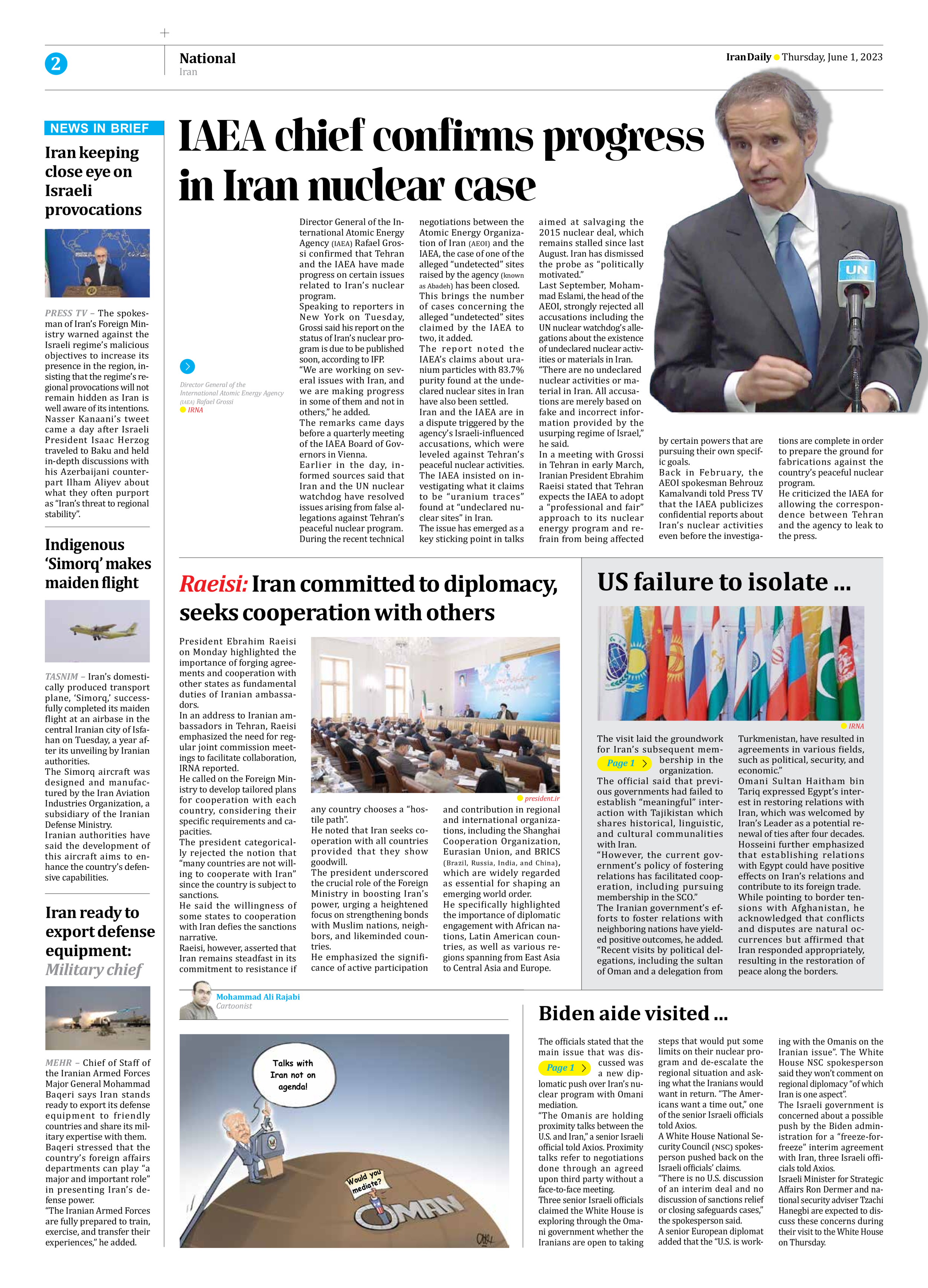
IAEA chief confirms progress in Iran nuclear case
Director General of the International Atomic Energy Agency (IAEA) Rafael Grossi confirmed that Tehran and the IAEA have made progress on certain issues related to Iran’s nuclear program.
Speaking to reporters in New York on Tuesday, Grossi said his report on the status of Iran’s nuclear program is due to be published soon, according to IFP.
“We are working on several issues with Iran, and we are making progress in some of them and not in others,” he added.
The remarks came days before a quarterly meeting of the IAEA Board of Governors in Vienna.
Earlier in the day, informed sources said that Iran and the UN nuclear watchdog have resolved issues arising from false allegations against Tehran’s peaceful nuclear program.
During the recent technical negotiations between the Atomic Energy Organization of Iran (AEOI) and the IAEA, the case of one of the alleged “undetected” sites raised by the agency (known as Abadeh) has been closed.
This brings the number of cases concerning the alleged “undetected” sites claimed by the IAEA to two, it added.
The report noted the IAEA’s claims about uranium particles with 83.7% purity found at the undeclared nuclear sites in Iran have also been settled.
Iran and the IAEA are in a dispute triggered by the agency’s Israeli-influenced accusations, which were leveled against Tehran’s peaceful nuclear activities. The IAEA insisted on investigating what it claims to be “uranium traces” found at “undeclared nuclear sites” in Iran.
The issue has emerged as a key sticking point in talks aimed at salvaging the 2015 nuclear deal, which remains stalled since last August. Iran has dismissed the probe as “politically motivated.”
Last September, Mohammad Eslami, the head of the AEOI, strongly rejected all accusations including the UN nuclear watchdog’s allegations about the existence of undeclared nuclear activities or materials in Iran.
“There are no undeclared nuclear activities or material in Iran. All accusations are merely based on fake and incorrect information provided by the usurping regime of Israel,” he said.
In a meeting with Grossi in Tehran in early March, Iranian President Ebrahim Raeisi stated that Tehran expects the IAEA to adopt a “professional and fair” approach to its nuclear energy program and refrain from being affected by certain powers that are pursuing their own specific goals.
Back in February, the AEOI spokesman Behrouz Kamalvandi told Press TV that the IAEA publicizes confidential reports about Iran’s nuclear activities even before the investigations are complete in order to prepare the ground for fabrications against the country’s peaceful nuclear program.
He criticized the IAEA for allowing the correspondence between Tehran and the agency to leak to the press.







